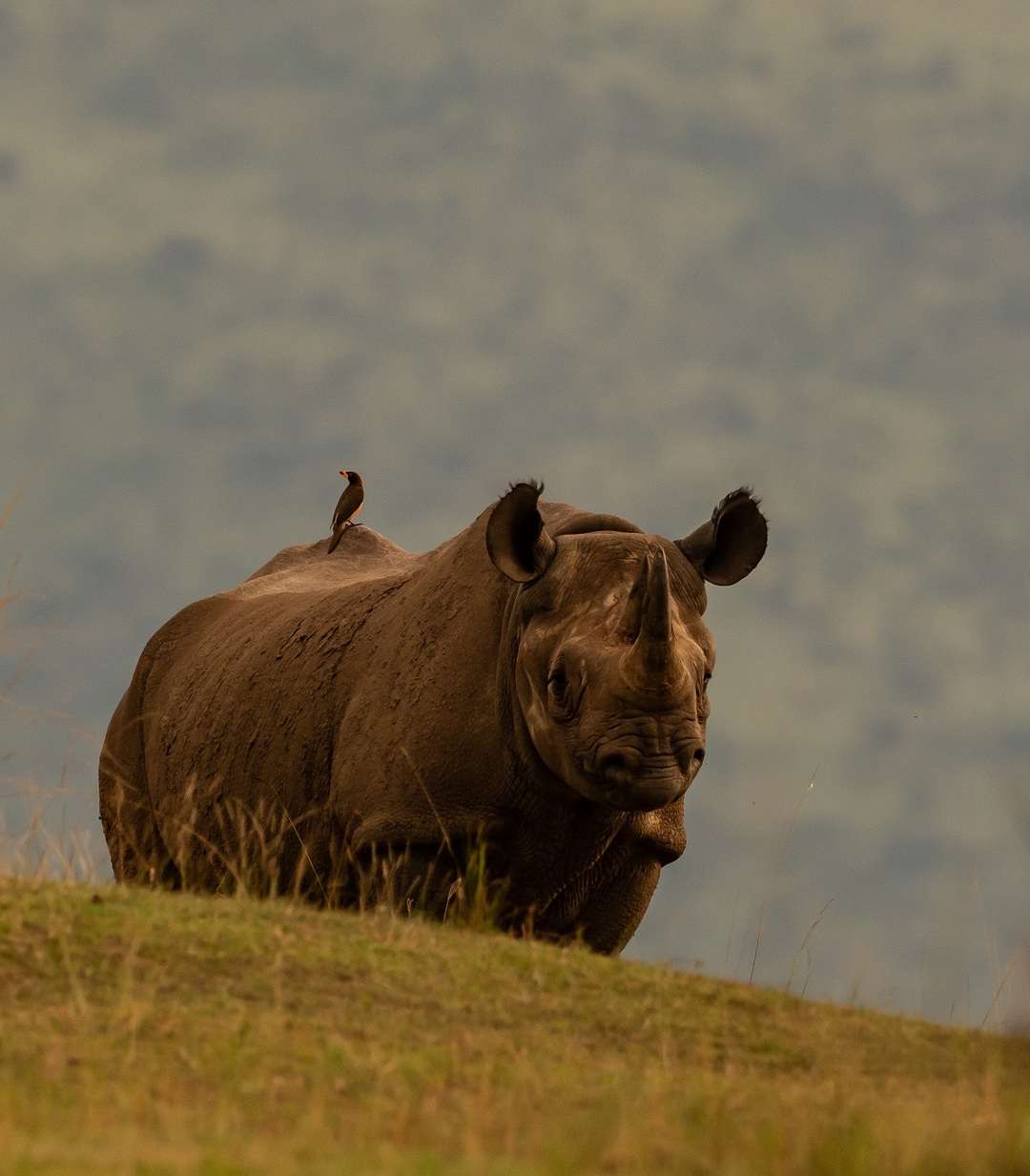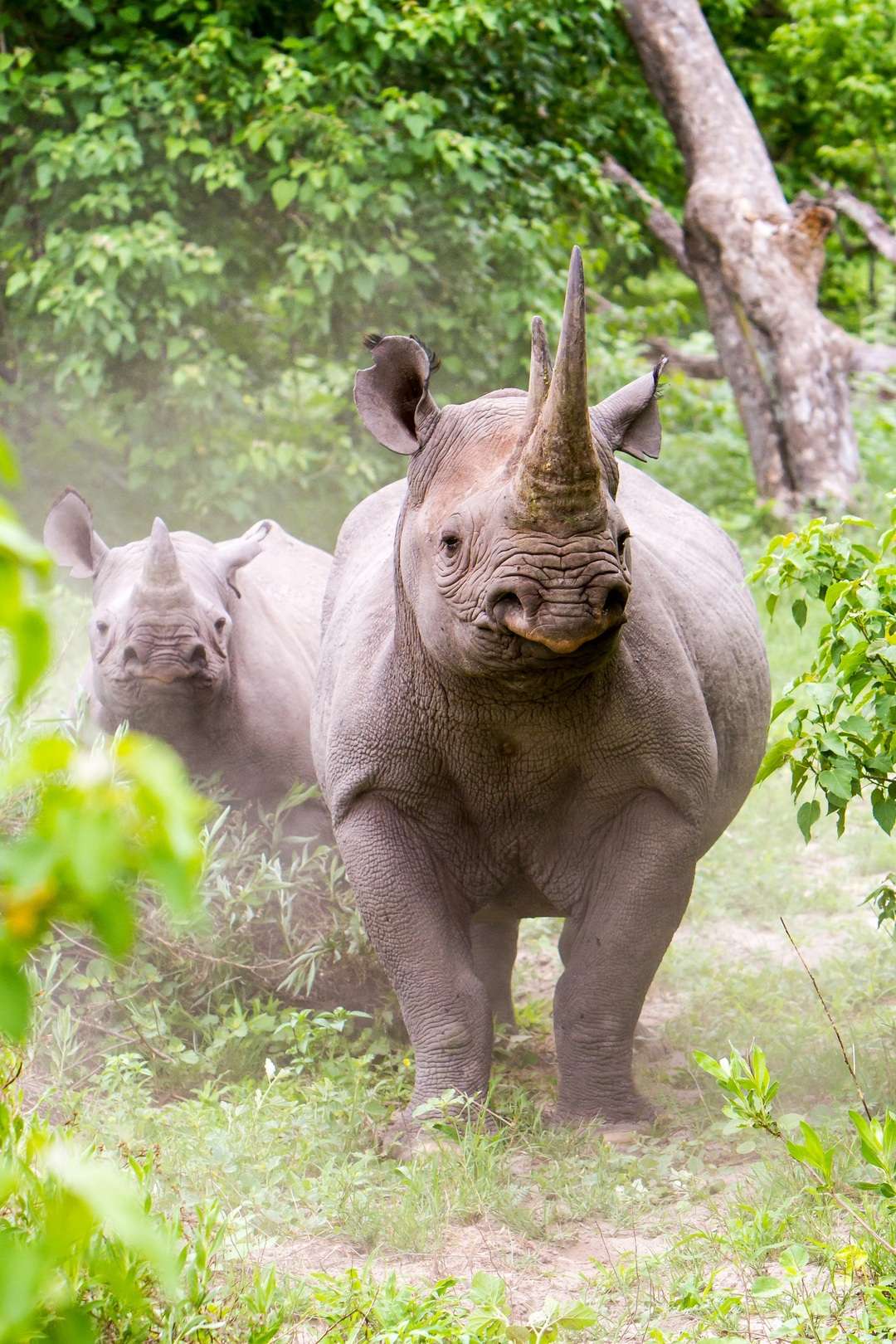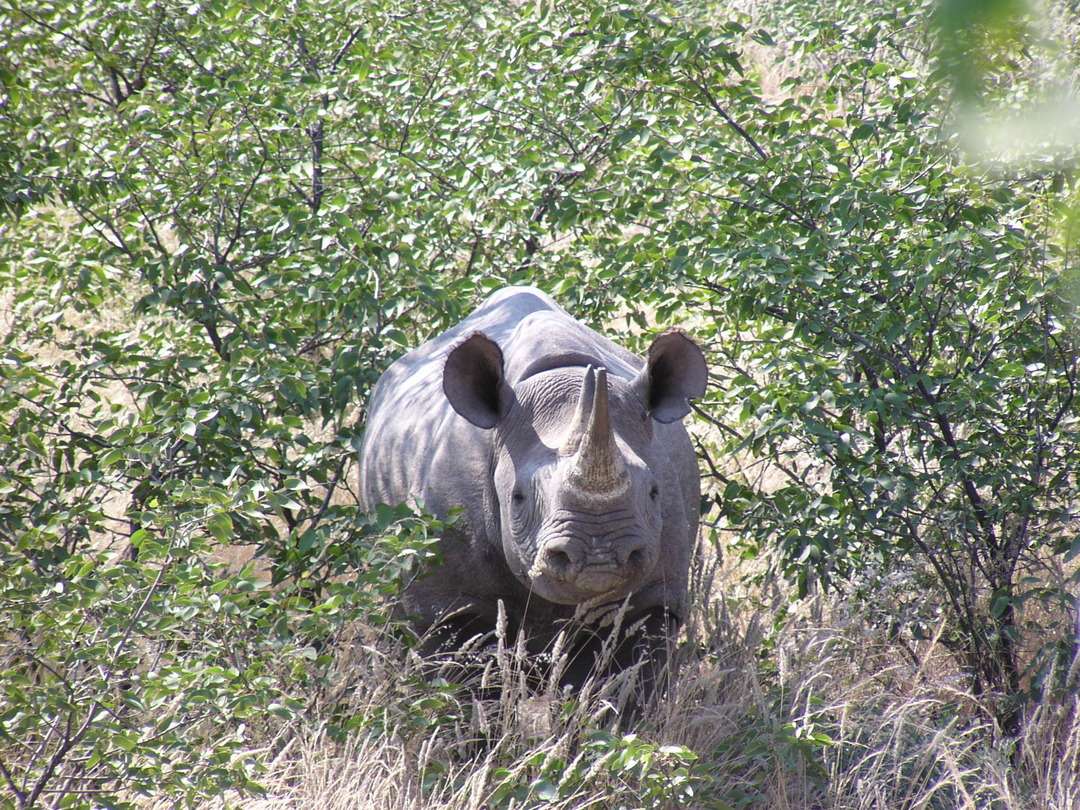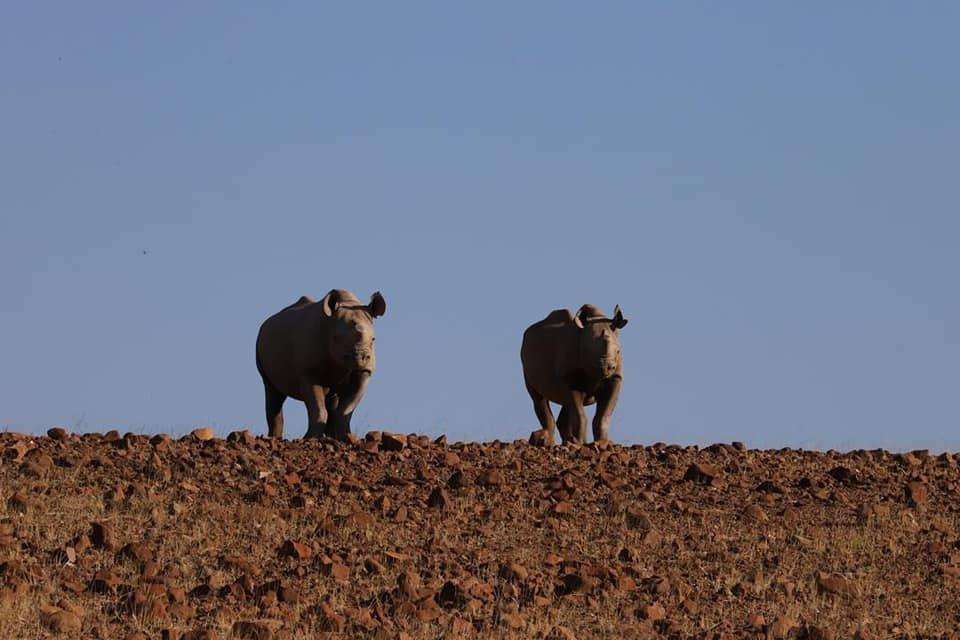2014 was a milestone for Wilderness – and Botswana’s rhino population – when the company, together with our government partners (Botswana and South Africa), numerous generous donors, trade partners, guests and NGOs, succeeded in moving a significant number of south-central black rhino (Diceros bicornis minor) from South Africa to northern Botswana. While this population has had its setbacks, the fight and population recruitment successes continue.
A Rwandan conservation success story has been the reintroduction of eastern black rhino (Diceros bicornis michaeli) back to the tropical savannahs of Akagera National Park. After an initial founding population was translocated in 2017, a further five animals of the same sub-species were moved in 2019. In this historic move, the rhino came from Safari Park Dvůr Králové in the Czech Republic. The translocation was a joint undertaking with the European Association of Zoos and Aquaria (EAZA), the Rwanda Development Board (RDB) and African Parks, to increase Akagera’s existing rhino population and increase the gene pool. Subsequent to their release this population has been doing well and a dedicated team of trackers monitors them daily. Wilderness Safaris is also proud to play a supporting role in terms of monitoring this rhino population in Akagera.

Today, over 90% of black rhino are found in just four countries: South Africa, Namibia, Zimbabwe and Kenya, with smaller populations in Botswana, Tanzania, Uganda, Zambia, Malawi and Swaziland. Black rhino are classified as Critically Endangered by the IUCN Red List of Threatened Species. Between 1970 and 1990, 96% were lost to poaching. By the early 1990s, the global population had plummeted to fewer than 2 500. Today, there are around 5 000 black rhino in the wild, thanks to ongoing and tireless conservation efforts by various organisations.

Many of these rhino conservation successes could not have been possible without our valued guests and donors. You can help save Africa’s rhino by making a much-needed donation to the Wilderness Wildlife Trust.








